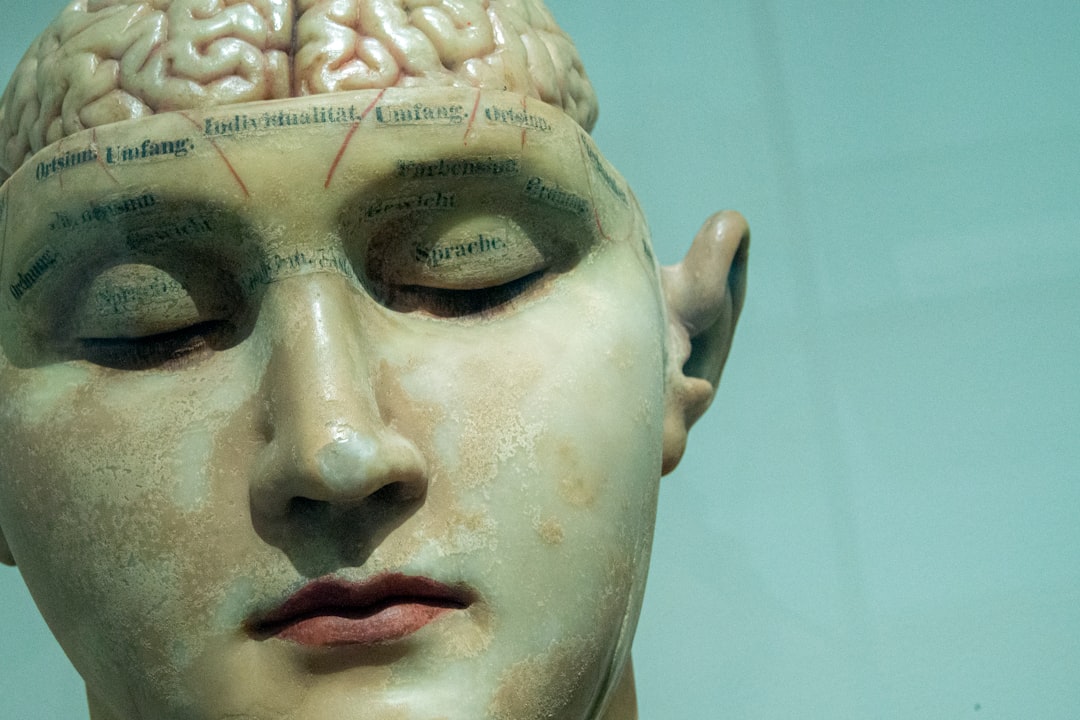Welcome aboard The Bus!
ORIGINALLY PUBLISHED (2.34) 26 JANUARY 2023
The Stop
Philosophical zombies are imaginary beings used by philosophers in thought experiments to examine consciousness and its relation to the physical world. These creatures are ‘exactly like us in all physical respects’ – there is absolutely no way to identify a person as a zombie as they behave exactly like us and some of them even have a career in which they investigate the very nature of mind – but have no conscious experiences. In other words, there is ‘nothing it is like’ to be a zombie. Some philosophers of mind maintain zombies are at least conceivable1 and still others that they are metaphysically possible.2 The consequence of their possibility is far-reaching for issues of the mind: if zombies are possible, then physicalism is false and some kind of dualism is true.3

At the heart of philosophy of mind is the ancient debate about its nature: is the mind a substance or a property?4 Substance dualism claims that humans are composed of two substances - mind and matter - which are entirely separate on an ontological level and do not rely on the other for their existence. For a brief while they are somehow joined in a human body, but at the end of life the physical substance dies while the mental substance continues to exist. This claim is in direct contradiction to physicalism, which maintains that everything in existence5 is physical matter. Physicalists argue this includes the mind, too: when the brain dies the mind ceases to exist as the mind is wholly dependent on matter for its existence.
A third theory is known as property dualism. Its proponents agree with physicalists that there is only one substance - matter - but argue that there are two types of properties: physical and mental. They claim that when organised properly into persons with brains, matter can have unique mental properties. Proving this division of properties is the holy grail for property dualists and is where the zombies come out to play.
The argument for property dualism is focussed upon explaining subjective human experience - i.e., ‘what it is like to be a conscious human being.’ This experience of what it is like - to see green, to taste coffee, to experience emotions, to have thoughts, etc. - is known as qualia: those ‘properties that characterise conscious states [and] what it is like to be in such a state or how they appear in my mind.’ As physicalists would claim the mind - and its qualia - is identical to matter, it would follow that all human beings would have consciousness and experience qualia.6 However, property dualists argue that if a being exists that is physically identical in every way to a conscious human being and yet has no consciousness, this would mean the mind is not identical to physical matter because it would not experience qualia. While you may drink a cup of coffee and experience consciously its smell, taste, warmth, etc., your zombie equivalent would drink the coffee with no experience of qualia at all. Property dualists believe that if such a creature could be proved possible, this would show there is ‘more to being conscious than can be captured in a completely physical description’ of someone.
Property dualism’s argument is based on the idea that the existence of these philosophical zombies is conceivable - a claim that works as there appears to be nothing contradictory in the idea of zombies existing since we have no problem imagining them. Though they cannot exist in our world as this would be physically impossible due to the laws of nature, because they are conceivable some philosophers argue there is no reason there couldn’t be another possible universe in which they could exist. This means that it is possible there is in existence a parallel world that is physically identical to this one in every way except that all the humans are zombies with no consciousness at all.
The zombie argument for property dualism works like this:
Physicalism claims consciousness is ultimately physical in nature.
It follows that any world which is physically identical to this world must contain consciousness.
However, we can conceive of a world which is physically identical to this one, but contains zombies in which there is no conscious experience.
Therefore, physicalism is false and property dualism is true.7
The Detour
Today’s Detour is to Kayak (6:10). A beautifully animated short, it’s the story of a father who - one summer’s day - takes his baby son on a kayak trip. Needless to say, it’s not a relaxing outing - especially when an eagle gets involved. Lots of gentle fun, but worth watching for the colour palette alone.
The Recommendation
Today’s recommendation is π (Pi) (1998). The debut film by Darren Aronofsky,8 it is described by Rotten Tomatoes as a ‘highly disturbing and bizarre’ study in mental obsession that is ‘brilliantly and artistically constructed.’ Maximilian Cohen, a paranoid-obsessive-mathematical-genius living ‘barricaded behind a triple-locked door, in a room filled with high-powered, customised computer equipment,’ one day discovers a mysterious 216-digit bug in one of his programs. Plagued by debilitating migraines and nosebleeds, Max starts to spin closer towards insanity as he begins to think this bug is actually the 216-character name of God as taught by a mystical branch of Judaism. If true, his discovery will unlock the universal patterns found throughout nature, and he's suddenly not the only person interested - for if ‘one finds the mathematical key to everything, that would include God, stock prices, the weather, history, the future, baseball scores and the response to all moves in Go.’9 It’s a highly stylised film, shot in rough, high-contrast black and white with a jarring and discordant soundtrack. I've only seen it once - upon its release - but images from the film stay with me to this day. Give it a try - you’ll never look at mathematics, the stock market, the Kabbalah, migraines, power drills or the idea of sanity the same way again. I certainly haven't.
π (Pi) streams on various platforms.
The Sounds
Today’s playlist is a collection of five tracks that - in my mind, at least - fit today’s Stop. Not to mention, they’re all really great tunes from the early 80s: ‘Eyes Without a Face’ (Billy Idol, 1983), ‘Synchronicity II’ (The Police, 1983), ‘Owner of a Lonely Heart’ (Yes, 1983), ‘It’s My Life’ (Talk Talk, 1984) and ‘Clones (We’re All)’ (Alice Cooper, 1980).
The Thought
Today’s Thought is from Friedrich Nietzsche:10
‘When we are tired, we are attacked by ideas we conquered long ago.’
If you have a thought on this Thought - or any part of today’s issue - please leave a comment below:
And that’s the end of this stop - I hope you enjoyed the diversion!
Thanks to everyone who subscribes - your interest and support is truly appreciated. If you like The Bus, please SHARE it with a friend or two.
If you haven’t climbed aboard The Bus, please do!
Until the next stop …
Philosophically, something is conceivable if it is capable of being imagined or grasped mentally without incoherence or contradiction.
Philosophically, something is logically possible if it is conceivable and doesn’t involve a contradiction; metaphysically possible if it is true in at least one possible world (a way of talking about how things could be); and physically possible only if it is true given the laws of nature. Just because something is conceivable does not necessarily entail its possibility.
Philosophical zombies are a notoriously tricky aspect of philosophy of mind and though probably too large for a single Bus Stop, I’ve tried to give an overview. Apologies for any lack of clarity; please ask if you need more information. Sources for today’s Stop include: Philosophical Zombies (Stanford), Philosophical Zombies (Britannica), Cardinal, Daniel. AQA A2 Philosophy. London: Hodder, 2015, and Lacewing, Michael. Philosophy for A2. Abingdon: Routledge, 2015.
A couple of definitions: a substance is a ‘basic kind of stuff or thing, something which doesn’t depend on anything else to exist.’ A substance is said to be ontologically distinct – it requires nothing else for its existence. By contrast, a property cannot exist on its own, but depends on a substance. For example: if water is a substance, ‘wetness’ is its property.
And by everything, they mean everything: from subatomic particles, waves and forces to colossal megastars at the edge of the universe.
Remember, this is a thought experiment - disease, aging, birth defects, brain damage, etc. that might interfere with or impair consciousness are not relevant at this point.
There are, of course, countless arguments for and against this argument alone - but this is the gist of the claim without getting technical. By the way, I don’t accept property dualism’s claim for a number of reasons, not least of which is that I feel if you have to resort to ‘zombies in a possible world’ to prove your point, well, you probably need to reconsider the point you’re trying to make.
Aronofsky has also directed/written/produced a number of remarkable (and inevitably disturbing and controversial) films including Requiem for a Dream (2000), The Wrestler (2008), Black Swan (2010) and Mother! (2017).
For a good review, see π (Pi) (1998) Roger Ebert.
For more information, see: Nietzsche (Britannica).






As I read the syllogism for property dualism I was struck with the gargantuan jump needed to get from 1 to 2, let alone 3 to 4. It simply asserts that consciousness is a necessary outcome in a world that is identical to ours. It manufactures (assumes) consciousness as a distinct entity.
As far as we can tell - given neuroscience and brain states - consciousness seems to emerge as a byproduct of the chemical/electrical interactions in our brain. While that is a remarkable (almost magical) occurrence, there is no evidence to suggest that consciousness occurs when those brain interactions end.
While somewhat unavoidable, it may be a mistake to speak about consciousness as a noun when it might just be an adjective. ;-)